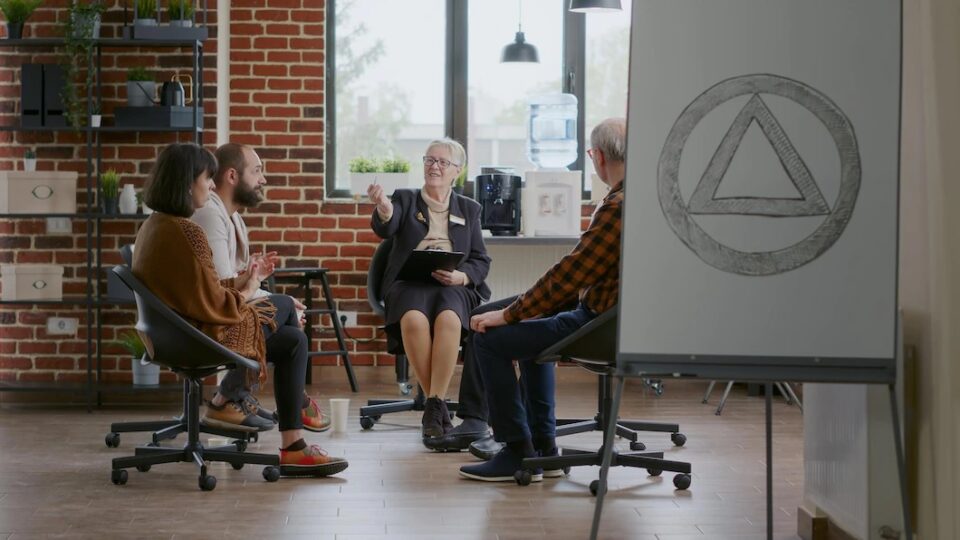It might be a bit intimidating for first-timers going to rehab, mainly because you don’t know what to expect. To calm yourself before going to the rehab centre, it’s crucial to understand what might happen so that you can be ready. To help you, this article will cover all the things you need to expect when you go to the addiction rehabilitation centre.
When to consider rehab
When your addiction is starting to have adverse effects on different aspects of your life, whether it’s your career, family, and physical health, it’s time to consider going into a rehab program.
If you think your addiction is starting to become a problem, some alternative ways that aren’t formal rehab programs are peer support groups and 12-step groups.
You may also consider going to a physician specializing in addiction medicine to get acute detoxification. They can also give you medication to limit your addiction and longing for substances.
However, once you’ve already tried these alternative ways, it’s time for you to consider going into a rehab program.
Types of rehab centers

When you go to rehab, there are different types of rehab centres to choose from, depending on what you think will fit you best. When you get professional help, they’ll help you decide. In the meantime, these are the three types of rehab centres:
- Long-term residential treatment – A type of treatment that will have you in their care daily, with healthcare professionals helping you with everything. Generally, this type of treatment lasts between 6 months to a full year.
- Short-term residential treatment – This type of treatment is based on the 12-step approach to addiction recovery.
- Outpatient treatment – If you still want to live at home while still receiving treatment, outpatient treatment is the best for you. It means you can get the treatment provided at residential rehab centres while still enjoying the perks of living at home and your usual lifestyle.
Checking In
When you walk into the rehabilitation facility, you’ll be welcomed by the staff. They’ll then guide you to go to an intake interview where they will ask you a series of questions that will be useful when they design your treatment plan. Answer the questions correctly, as lying or being disingenuous may adversely affect your treatment.
Detoxification
Once you’re done with the interview/assessment, you need to go through detoxification. The detox is about removing all the drugs, alcohol, and other addictive substances from your system. Of course, this will be difficult if you’re addicted to them, but it’s a vital step in your rehab process to ensure you’re ready for treatment. Furthermore, this will help condition your body and mind for the rehab centre’s treatment program.
However, since detox involves removing that substance that you’ve been taking for a prolonged period, it may result in you experiencing some withdrawal symptoms, which can be uncomfortable in most cases. To alleviate these symptoms, the rehab centre professionals can provide you with medications known to handle the withdrawal symptoms that often come up for people detoxing from the drug you’re addicted to.
Therapy
Many types of therapy may be employed depending on what will suit you best, your needs, and the kind of rehab program you prefer.
- Individual therapy – This type of therapy will have you in one-on-one sessions with a mental health professional. In individual therapy, the key is being honest with your addiction. By being honest, you can give your doctor something to work with to help you get the best treatment. Furthermore, this will help your therapist know what triggers your addiction and take steps to ensure that you can avoid these triggers and teach you how to handle them if they present themselves.
- Family counselling– Sometimes, family and friends need to get involved in the recovery process, and research proves that it’s effective in terms of improving recovery from addiction. It’s why many rehab centres offer family therapy, too.
Anyone with a family member with addiction problems will be negatively affected by it. Through family therapy, everyone can have a safe space to talk about things, such as their experiences, how they might have affected the problem, and why they want the addiction to be treated. Having everyone’s side, it can be a very productive session that might have the patient respond better after hearing the views of family members.
- Group therapy – Another option is group therapy, which is very popular in rehab centres. Basically, a group of patients led by a therapist share their experiences and challenges regarding their addiction and treatment. Of course, the things people talk about in group therapy can differ from facility to facility, so ask your rehab centre about this.
Aftercare
Once you’re in the final weeks of your addiction treatment, your therapist will talk to you about your aftercare plan. Aftercare differs from patient to patient, as people are different in terms of their pace of recovery. If you’re wondering why you need it, it’s to ensure that you can continue your recovery out of the facility and you don’t relapse.
Aftercare plans include social and medical support services once you finish treatment. Other parts of aftercare include transitional housing, follow-up therapy and counselling, medical evaluations, and alumni support groups that will be very helpful, especially when you feel like you might go back to substance abuse.
Know what to expect
For better rehabilitation results, talk to your rehab centre about what you need to expect once you go into rehab.

